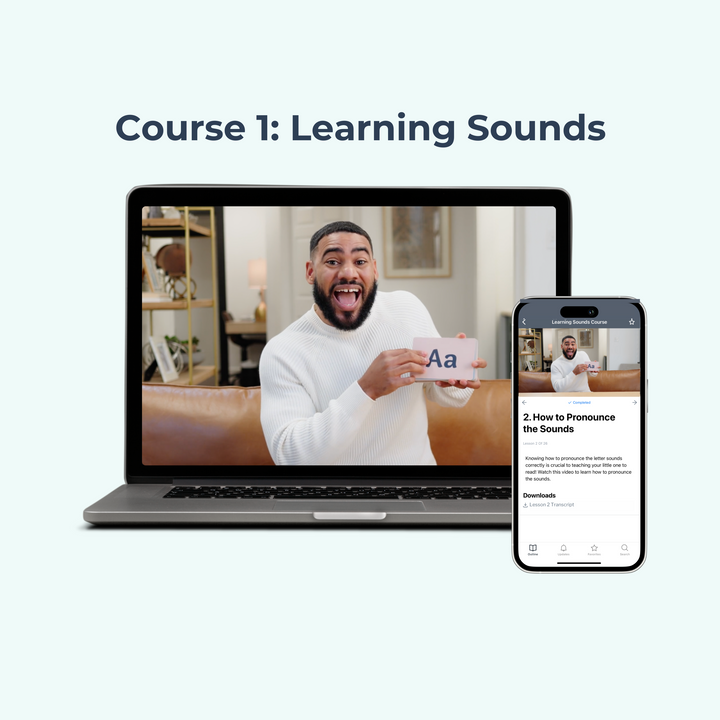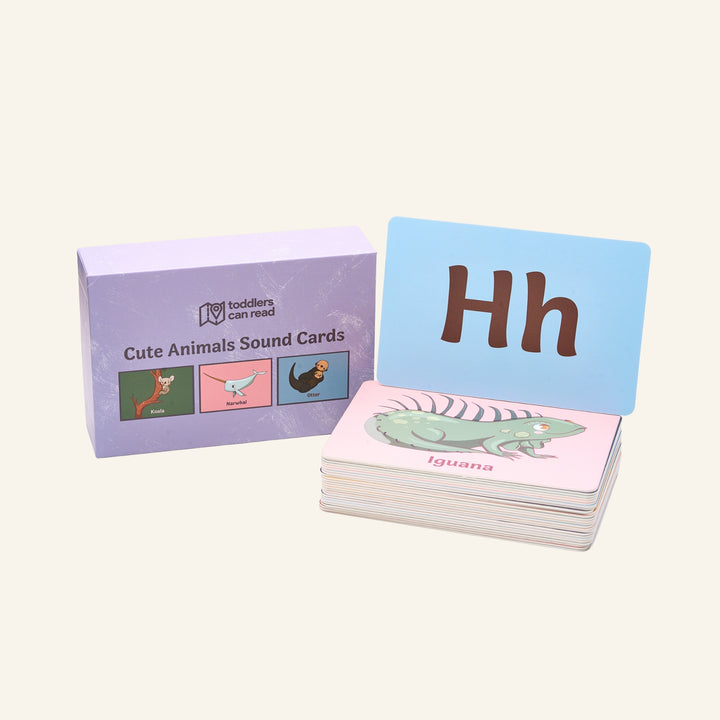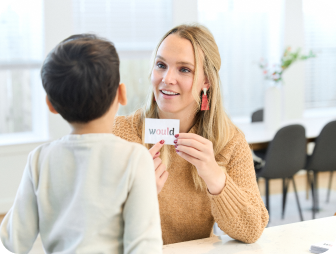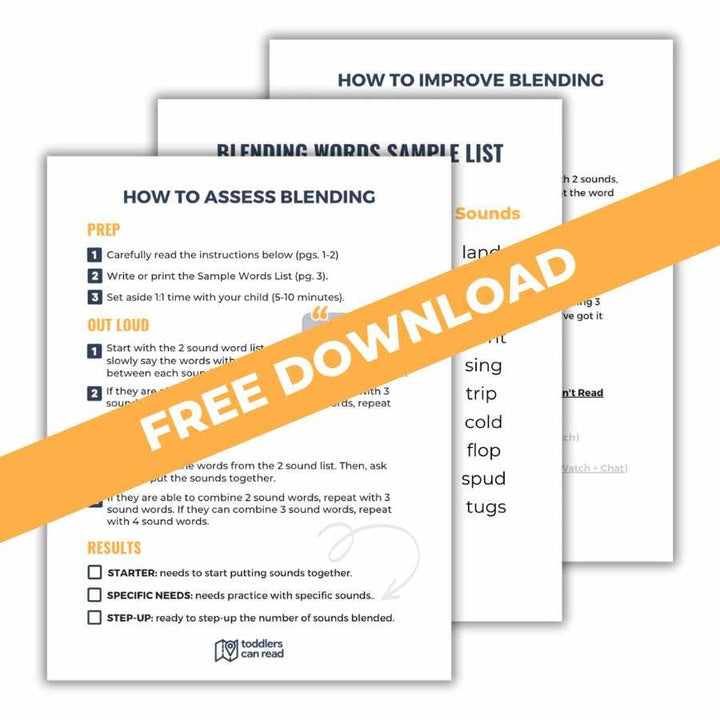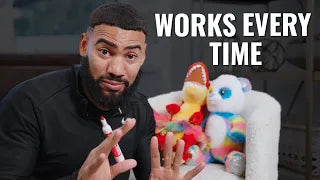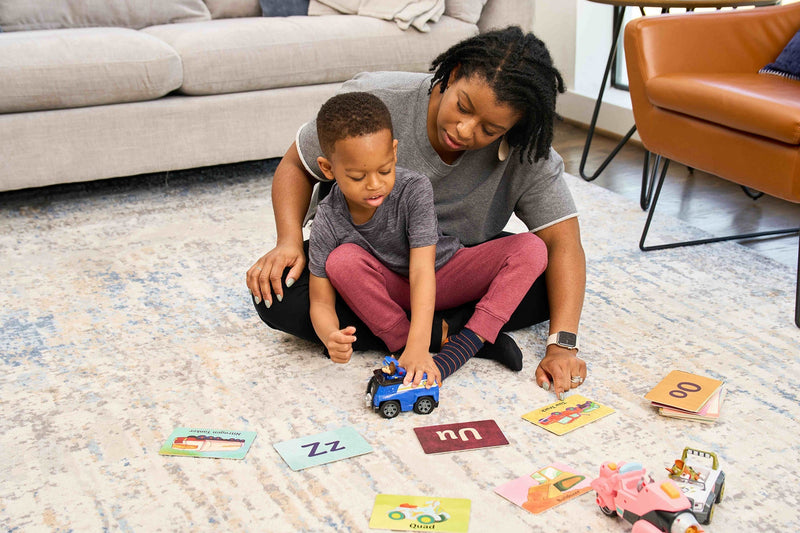If you've ever scrolled through the comment section of one of my videos (or anyone else who believes that toddlers can learn how to read), you're bound to have come across someone chiming in with something that starts along the lines of "Research shows ______" or "Scientists have proven that _____."
(You can fill in the blank with something to the effect of: Early reading harms kids.)
Often, if that comment reinforces some belief we already hold about our little ones, we take it at face value. Why would we question something that proves us right? After all, science has SHOWN whatever we believe to be true.
But here's the thing: Instagram is not Google Scholar.
And we consume so much content on a daily basis that we hardly take the time to question whatever it is we're being told. This stranger on the internet might not have the credentials or background to have carefully analyzed this "research" they're citing. They might be regurgitating something someone else claimed to be "research," failing to fact-check it because it seemed right or it confirmed something they've always believed.
And what makes this so dangerous is that it has a real, tangible impact on the parenting decisions we make for our little ones.
I see this all the time with people who disagree with the work I do. Parents and other content creators citing what they believe to be evidence in order to convince followers that teaching a toddler to read is wrong. They use the same studies embedded within secondary sources (more on this below) over and over, trying to prove that not only should you not teach a toddler to read, but that it will be harmful to them if you do.
The thing is: I've seen all this "research." I've spent hours pouring over every source that's been cited and all the studies that are referenced. And what I've noticed is that every time you put one of these sources under the microscope, the evidence is either incredibly weak or the data is grossly misinterpreted (and in some cases, even purposely misconstrued.)
The research doesn't say what people think, claim, and believe it says.
You Deserve The Facts
Every parent deserves to make decisions they believe are best for their little one. If you believe wholeheartedly, without a shadow of a doubt, that you shouldn't teach a toddler to read, I'm not going to try and convince you otherwise. I believe that you know your child's needs better than I (or any other parent) ever will.
But, you also deserve to know what research does and doesn't say about how we teach our children. And part of understanding what the research says is knowing how to differentiate between what actually constitutes research, and what people claim is research.
Regardless of what choices you make for your child, I hope this blog post gives you some of the tools you need to figure out which sources you can (and can't) rely on to give you evidence-based information.
What Research Is
In order for something to be considered scientific research, it must follow the scientific method:
The scientific method is "the principles and empirical processes of discovery and demonstration considered characteristic of or necessary for scientific investigation, generally involving the observation of phenomena, the formulation of a hypothesis concerning the phenomena, experimentation to test the hypothesis, and development of a conclusion that confirms, rejected, or modified the hypothesis."
Basically, if we want to tack on the words "research shows" to the beginning of a statement we're about to make, we need to be referencing a study that has been carefully designed and executed with fidelity. Studies that fall under this category include:
- An explicit hypothesis to explain what the study is examining.
- An outline of the methods, including details about the participants and the measures that were used to gather data.
- The results of the study, with an explanation of the statistical analyses used to calculate those results.
- A discussion of the findings and the implications for future research.
Ideally, these studies are also published in a well-respected and peer-reviewed journal, such as the Journal of the Society of Research in Child Development or the Journal of Early Childhood Research.
Note: Being "peer-reviewed" simply means that the study has been evaluated by established researchers in the field, and is credible enough to include in a journal among other studies conducted by distinguished authors.
What Research is Not
Almost more important than being able to discern whether something is scientific research is knowing how to discern what is not scientific research.
I've received hundreds of angry messages from hundreds of folks sharing "research" that "proves" I'm promoting something that harms children. But the majority of the time, what they send isn't actually research at all.
Often, it's a blog post, opinion piece, or article that looks something like this: A top researcher says it's time to rethink our entire approach to preschool.
I know, I know: it's a catchy title. It just sounds bad. Especially coming from a "top researcher".
But again, we can't claim articles like this as research because they are secondary sources. Meaning: They are not conducting original, scientific research. They're simply looking at someone else's study, or (more often than not) another article and coming to their own conclusions.
If we truly want to know what the research says, it's not enough to simply take someone else's word for it (not even mine). It leaves too much room for misrepresentation or misunderstanding and it rarely provides you with the whole picture.
Here's how I think about it: If I wouldn't take someone's word on a restaurant recommendation without reading the menu and trying the food myself, I'm sure as hell not going to take someone's word on what's best for my child without reading the research and trying it myself.
Relying solely on secondary sources doesn't allow you to understand the nuance of the study or consider the full context of what's being presented to you. ESPECIALLY when you're hearing about that secondary source FROM another secondary source (some stranger on the internet).
So why does this matter?
Because our kids matter.
It only takes one person's poor interpretation (intentional or not) to spread misinformation to thousands of people and impact the decisions they make about their children. And this misinformation becomes insidious. Once someone believes something to be true (especially when it makes them feel validated), they go on to regurgitate the same talking points to their friends and family and online, insisting "research has proven ____" ... whether research actually says that or not.
And at the end of the day, our kids deserve better. The evidence we use to make decisions as parents and caregivers should be based on real research, not just the stuff that agrees with us.
The fact that not everything we've believed to be true on the internet is actually true is an uncomfortable thought. And my goal here isn'aaat to make you feel guilty or anxious about that, but to help you make better, more informed decisions for your child.
In my upcoming blog series, I'll be giving you a breakdown of some of the most common research studies I see cited by the folks who argue against early reading instruction.
As I said before, I'm never going to try and convince you that you have to or even should teach your little one how to read, because I don't believe that. But if you are coming into this blog series as someone who generally disagrees with the content I post, I will ask you to do one thing:
Keep an open mind.
